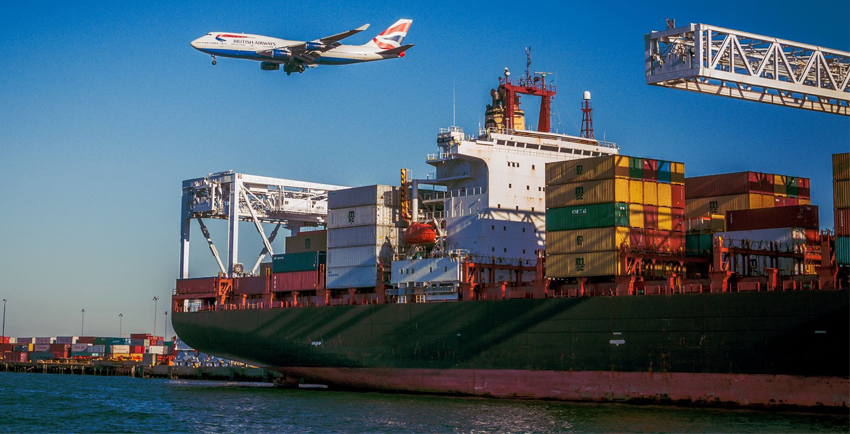Difference between Air and Sea Freight

Air Freight Versus Sea Freight
When it comes to shifting your goods, often, one has to choose between sea freight and air freight depending on the need of the hour. In this blog, we like to enumerate which to go with depending on the circumstances. Here we go: Economic ViewPoint: If you want to select the cost-effective option between the two, then sea freight comes out cheaper by all counts. Air freight is charged according to both the size and weight of the shipment with more consideration given to the weight. This is because large items are generally supposed to be of higher weight than smaller items. Alternatively, goods on sea freight are charged according to the size of the shipment. A factor that affects the pricing of the shipment is determined by whether the goods require a full-dedicated container (FCL) or can be accommodated with other cargo. In the latter case, the shipment pricing is determined by volume in cubic meters. This makes sea freight the better option when there are large shipments involved. Another factor, that stipulates pricing is destination charges such as customs and fees which the shipping party has to pay regardless of the mode of transport. At times, warehousing at seaports can be higher than warehousing at airports, making airfreight the feasible option. Need of the Hour/ Urgency: Usage of the mode of transport can sometimes be dictated by the amount of time available for the shipping party. In case, where the shipment has to reach the destination without delay and on an urgent basis, airfreight must be chosen irrespective of the higher charges. Most often, shipments by sea freight can take weeks and sometimes months. In contrast, air freight the whole shipment can be transported in a matter of days. Reliability Factor: When choosing the reliable option out of the two, it is air freight that comes out winning. However, there could be situations where rough weather may delay the airfreight on rare occasions. This has to be factored in when booking shipments over long distances, but the time taken by air is relatively lesser compared to the sea. Only businesses that can afford to operate with large time lags will choose sea over air freights. Ecological Footprint: While it may be a given fact that time and money are critical factors in carrying out a business. However, we also have a responsibility towards our environment. With human activities making the environment vulnerable with each passing day, it becomes important that businesses stand together to do their bit towards an environmentally sustainable future. Behaving in an environmentally conscious manner also reflects well on the company as it can ensure tremendous public goodwill. Between air and sea freight, it is the sea that wins hands down with regards to environmental sustainability. This is an account of the higher level of C02 emissions generated by air freight, making it have a higher ecological or carbon footprint. This makes it imperative for businesses to choose sea freight from time to time in place for air freight to remain within the norms of an environmentally conscious corporate citizen. Conclusion: The reader must have got a better understanding of the sea and air freight when compared head-to-head. Such an understanding would allow businesses to make the wise choice for shipment depending on the prevailing circumstances. Overall, businesses are expected to tread in a balanced manner keeping profitability and environmental sustainability on equal footing.
